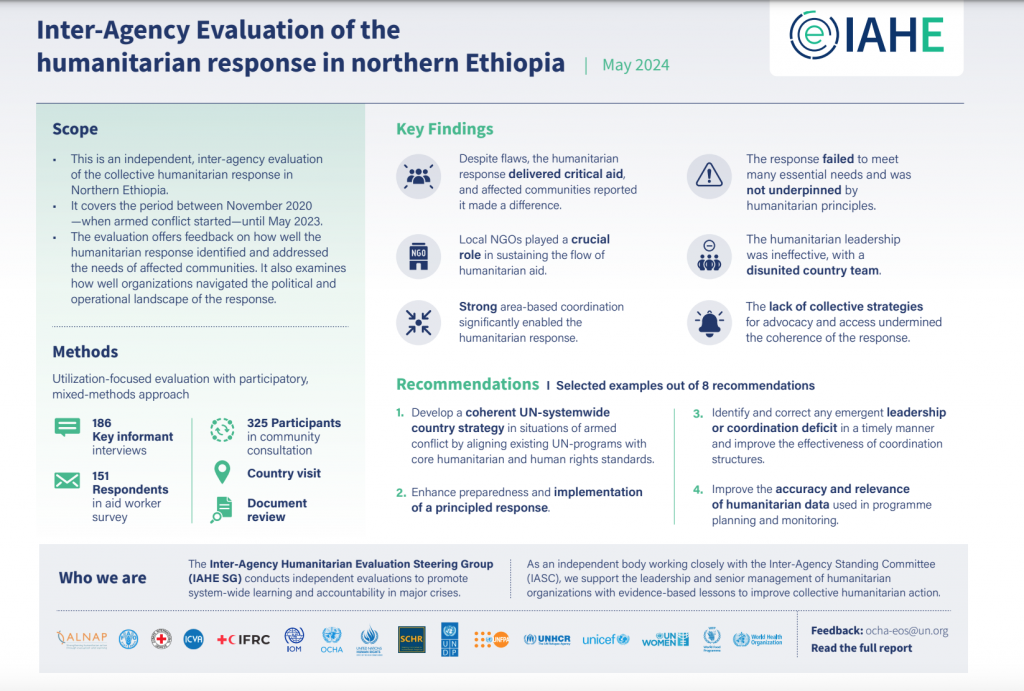Summary
Reports on Tigray Genocide, Eritrea, and UN
Published
1 year agoon
By
TghatThe following are some recent reports on Tigray and the Horn of Africa.
1) The New Lines Institute Reports
The New Lines Institute published report “Genocide in Tigray: Serious breaches of international law in the Tigray conflict, Ethiopia, and paths to accountability”. The reports says, among others,
- There are multiple, widespread and credible independent reports that the conduct throughout Ethiopia of the federal Ethiopian National Defence Force (ENDF) on behalf of Ethiopia, Amhara regional armed forces and/or militia (Fano) and loyal groups, the Eritrean Defence Forces (EDF), as well as the Tigrayan People’s Liberation Front (TPLF), Tigray Defence Forces (TDF) and those loyal to them, have violated international humanitarian law and international human rights law.
- There is a reasonable basis to believe that such violations amount to the commission of war crimes and/or crimes against humanity. These include numerous examples of inhumane treatment, such as that prohibited under common article 3 of the Geneva Conventions, as well as violations of the requirements of distinction and proportionality in carrying out attacks. Correspondingly, the evidence suggests that Ethiopia has not made adequate efforts to discharge its obligation under customary international law—equally applicable in non-international armed conflicts—to investigate war crimes committed by its nationals or armed forces, or on its territory, and, as appropriate, to prosecute the suspected perpetrators.
The report calls on states to recognize that there is at least a reasonable basis to believe that genocide and other related acts were committed in Ethiopia against Tigrayans, and that responsibility for these acts may be attributable to Ethiopia as a State; and therefore to conform their bilateral relations with Ethiopia, to take appropriate action in light of their own obligations under the Genocide Convention, including, as appropriate, instituting proceedings before the International Court of Justice under Article IX, to take appropriate action in multilateral fora to secure an international, impartial, and independent criminal investigation of such acts by the International Criminal Court or any other suitable mechanism; and to exercise universal jurisdiction, in accordance with applicable domestic law, over individuals implicated in the commission of genocide and other related acts, as well as other core international crimes such as crimes against humanity and war crimes.
See also a presentation of the report
2) Inter-agency humanitarian evaluation of the response to the crisis in Northern Ethiopia
This report assessed the collective humanitarian response to the crisis in the three northern regions of Ethiopia between November 2020 and April 2023. The evaluation finds that the collective response to the needs of people in Northern Ethiopia was not adequate.

This evaluation report which reiterates that ICHREE conclusion that crimes “amounting to war crimes and crimes against humanity” have been committed found that humanitarian actors were not prepared to respond, underestimated the scale of violence, and that their response lacked principles of humanity, impartiality, neutrality and independence and in line with international humanitarian law. It adds the that in n reality, the Ethiopian government controlled them. The report also says UN and non-UN agency staff were harassed, arbitrarily arrested, detained and tortured, but the UN and the HCT did not speak out about these incidents. The report adds there were disagreements within Humanitarian Country Team about what a principled approach entails and this resulted in a lack of collective strategy, and that the Humanitarian Country Team failed in its function to provide a forum for policy dialogue and strategic decisions.
3) Situation of human rights in Eritrea Report of the Special Rapporteur on the situation of human rights in Eritrea
In his report, the Special Rapporteur provides an overview of the human rights situation in Eritrea, with a focus on the persistent violations in the context of the indefinite and compulsory national service, the repression of freedom of religion or belief, the state of the rule of law and the administration of justice, and violations of civil and political rights, including prolonged and arbitrary detention and enforced disappearances. The Special Rapporteur highlights the lack of civic space in Eritrea and evolving patterns of transnational repression. He expresses concern over the continued presence and involvement of Eritrean forces in the commission of human rights violations in Tigray region. The Special Rapporteur stresses the serious challenges faced in the protection of Eritrean refugees and asylum-seekers.
“Ethiopia has been in constant political instability due to endless wars with itself and neighboring countries in the last fifty years. It is the only African country that has been so busy with war for many years. The war in Eritrea lasted for 30 years, and the Tigray region raged for seventeen years. Instability in Oromiya, Ethiopia’s biggest region, has been there for the last fifty years. It is among a few African countries that waged three major wars with its neighbor (including the involvement of Eritreans in the Tigray war). Ethiopian history has also registered protests and uprisings. Ethiopia had never registered sustainable economic development in those years except the one decade between (2006-2014) when there was no major recorded war. ”